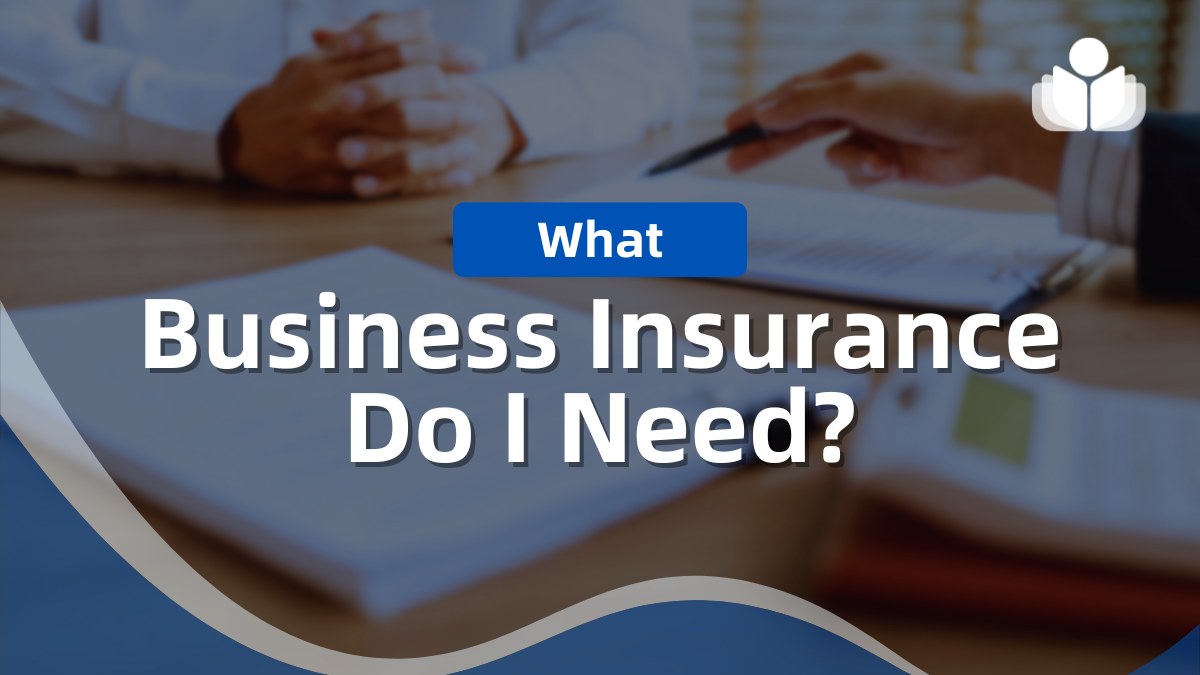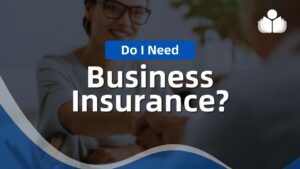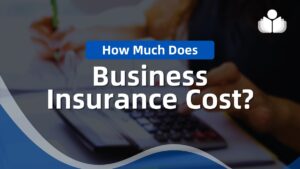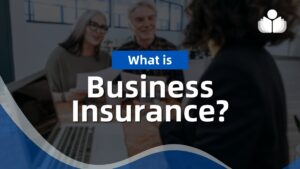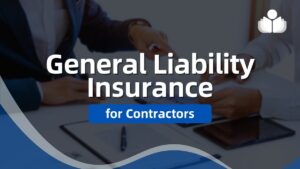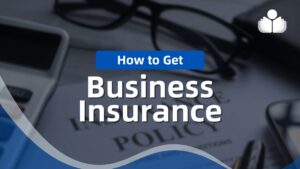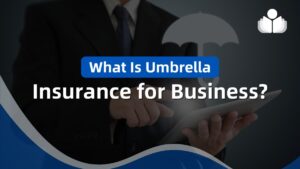The question of what insurance a small business needs isn’t straightforward, as the necessary coverage depends on your business activities and location. In fact, state laws often mandate certain types of insurance for small businesses, and it’s crucial to ensure you have the right policies in place.
Without proper small business insurance, you might have to pay for claims out of pocket. Many small businesses lack the resources or capital to handle these costs, which can jeopardize their survival. Therefore, investing in the right small business insurance isn’t just a precaution, it’s essential for protecting your company and securing its future.
>> Secure Your Future – Get Covered With Next! >>
Types of Business Insurances
Here are the types of insurance a small business may consider:
- Business Liability Insurance
- Commercial Property Insurance
- Business Interruption Insurance
- A Business Owners Policy
- Commercial Auto Insurance
- Cyber Liability Insurance
- Errors and Omissions Insurance
- Technology Errors and Omissions Coverage
- Commercial Umbrella Insurance
- Workers Compensation Insurance
- Other Types of Small Business Insurance
Business Liability Insurance
General liability insurance is crucial for protecting a small business from claims related to property damage and bodily injury. As a small business owner, you could be legally liable if someone’s property is damaged while visiting your business, company, or store.
Moreover, if your business is deemed responsible for someone’s injuries (excluding those of an employee), this insurance would cover their medical expenses and lost wages.
This type of insurance also addresses claims of reputational harm, advertising injury, and copyright infringement. By holding a business liability insurance policy, your small business can maintain financial stability in the event you’re sued by a customer or another business. A general liability policy not only covers legal costs but also settlements and judgments.
Financial lenders, landlords, licensing boards, and business clients often require proof of general liability insurance before engaging in business activities with you. Therefore, securing commercial general liability insurance should be a priority, and having a certificate of insurance demonstrates that your business is appropriately covered.
Commercial Property Insurance
A commercial property insurance policy is essential for protecting the physical assets of your small business, including the location itself and the contents like business equipment, computers, and office furniture. This policy covers both owned and leased items.
Running a small business involves numerous assets, and a commercial property insurance policy offers broad protection. It covers tools, inventory, supplies, valuable papers, and business records. Even outdoor fixtures like signs and fences are included under this policy.
Typically, a commercial property insurance policy protects against losses due to various perils, such as lightning, wind, hail, and fire. It also safeguards against theft and acts of vandalism, providing comprehensive coverage to ensure the resilience and continuity of your business operations.
Business Interruption Insurance
A business interruption insurance policy, also known as business income insurance, is crucial for replacing lost income if your small business must temporarily shut down due to a covered loss, such as a fire or a lightning strike. It also covers other perils like theft, wind damage, and falling objects.
Should any of these incidents occur, business interruption insurance helps compensate for the financial impact on your business. This includes covering the cost of damaged merchandise, lost earnings, and additional expenses incurred, such as the need to relocate your business temporarily.
Investing in this type of insurance ensures that your business can sustain itself financially during unexpected closures, aiding in stability and recovery.
>> Explore Next for Comprehensive Coverage >>
A Business Owners Policy
A Business Owners Policy (BOP) offers a convenient and cost-effective way for small businesses to secure essential insurance coverage.
By bundling general liability insurance, commercial property insurance, and business interruption insurance, a BOP simplifies protection and is generally more affordable than purchasing these policies separately.
According to Insureon, the average cost of a BOP is around $53 per month. This makes it a practical choice for small businesses, especially those with 100 employees or fewer and revenues up to about $5 million.
The Insurance Information Institute suggests that such businesses are ideal candidates for a BOP, providing them with a comprehensive coverage solution that supports their needs at a manageable cost.
Commercial Auto Insurance
Commercial auto insurance is essential for vehicles used in your small business operations, such as cars, trucks, and vans. A personal auto insurance policy generally doesn’t cover vehicles when they’re used for business purposes.
This is why it’s critical to have a commercial auto insurance policy for any company-owned vehicle used for business activities. If you don’t secure business auto insurance for your work vehicles, any claims you make could be denied, leaving you to cover all costs associated with an accident or other damages, which can be prohibitively expensive.
Hired and non-owned auto liability insurance provides liability coverage for employees renting or using their personal vehicles for business purposes.
Considering that personal insurance policies don’t cover business driving, it’s crucial to obtain hired non-owned auto liability insurance when renting a car for work or using your personal vehicle for business tasks.
This coverage ensures you have the necessary protection against significant expenses if you are found at fault in an accident while driving for business.
Cyber Liability Insurance
A cyber liability insurance policy is critical for managing the financial repercussions of cyberattacks and data breaches. For example, if private customer information leaks from your company’s database and a customer files a claim against your company, cyber liability insurance will help cover the associated costs.
This type of insurance is also invaluable for covering expenses such as notifying customers affected by a data breach and providing them with free credit monitoring services. These actions are essential for maintaining customer trust and compliance with data protection regulations after a security incident.
Errors and Omissions Insurance
If your small business offers professional services or advice to clients, obtaining errors and omissions (E&O) insurance, also known as professional liability insurance, is crucial.
This type of insurance covers costs arising from errors, omissions, or negligence in your services. It protects against claims of misrepresentation, violation of good faith and fair dealing, and giving incorrect or inaccurate advice.
E&O insurance not only covers compensation to clients who make claims against your business but also pays for legal defense costs, judgments, and settlements. Without this insurance, you would be responsible for these costs out of pocket, which could be financially devastating.
Here are some examples of small businesses that would benefit from E&O insurance:
- Accountants
- Advertising agencies
- Graphic designers
- Interior decorators
- Management and business consultants
- Real estate agents
- Tax preparers
- Technology professionals
- Travel agents
Technology Errors and Omissions Coverage
If you work in the technology sector, you might consider purchasing a specialized errors and omissions (E&O) policy tailored to your field. Technology E&O insurance covers legal and other expenses arising from claims made by customers against a small technology business.
This type of insurance is crucial because it addresses the risks associated with providing technology services and products. Here are some examples of small business technology professionals who would benefit from this coverage:
- Computer consultants
- Internet service providers
- IT contractors
- Software developers
- Website developers
Commercial Umbrella Insurance
Commercial umbrella insurance acts as a safety net by providing an additional layer of liability protection for your small business. This type of insurance kicks in when you reach the liability limits on an underlying policy, such as a general liability or commercial auto policy.
For example, if your company faces a lawsuit demanding $1.2 million but your business liability policy covers only $500,000, a commercial umbrella policy would step in to cover the $700,000 shortfall. This can be crucial in preventing significant financial strain due to unexpected claims.
The cost of a commercial umbrella policy depends on how much coverage you choose and the level of risk associated with your business.
Typically, businesses in higher-risk industries or those with greater exposure to potential lawsuits will pay more for this protection. It’s important to assess your business’s specific needs and risks to determine the appropriate amount of umbrella coverage.
>> Ensure Your Business’s Future With Next >>
Workers Compensation Insurance
If your small business employs at least one person, you’re required to obtain workers’ compensation insurance. This insurance is mandatory in most states and provides coverage for work-related illnesses and injuries. It ensures that your employees receive medical care, compensation for lost wages, and disability benefits.
Other Types of Small Business Insurance
Here are some additional insurance types that might be necessary for a small business:
- Directors and Officers (D&O) Insurance: This liability insurance covers the decisions made by a company’s directors, officers, and board members. It protects them by covering legal expenses if they’re sued by employees, vendors, investors, or customers for alleged mismanagement.
- Inland Marine Insurance: This insurance covers products, materials, and equipment while they’re transported overland by truck or train. It offers compensation for items that are damaged, lost, or stolen during transit.
- Product Liability Insurance: If your business manufactures products, this insurance is crucial. It covers claims and lawsuits alleging that your products caused injury or property damage.
- Builder’s Risk Insurance: Also known as “course of construction insurance,” this provides property coverage for buildings and structures currently under construction, safeguarding against risks like fire, weather damage, or vandalism during the construction process.
Do I Need Liability Insurance for My Small Business?
Yes, most businesses do indeed need liability insurance. Among the various types available, general liability and professional liability are the most common. Securing the right business insurance coverage is just as crucial as protecting your home with homeowners insurance; both are vital investments.
Combining insurance with financial safeguards like surety bonds can enhance your overall protection. This approach ensures that your business is well-defended against potential claims and losses.
What Insurance Do I Need to Start My Own Business?
When starting your own business, it’s essential to secure certain types of insurance to protect both your operations and employees. Here are a few key coverages you should consider:
- General liability insurance
- Professional liability insurance
- Workers’ compensation insurance
The specific types of insurance you need, along with any additional coverage, will depend on the nature of your business activities and the regulations in your state.
Best Insurance Providers for Your Small Business
- Quickly obtain a quote and purchase a policy online within minutes
- Easily access and distribute your certificate of insurance online
- NEXT provides some pricing details online, allowing you to estimate costs before obtaining a full quote
- Lacks availability of certain specialized types of coverage, such as key person insurance or directors and officers insurance
NEXT’s general liability insurance premium provides unique, cost-effective solutions to damage claims quickly. Typically, an insurance adjuster assesses the damages and reaches a decision within two days after a complaint is filed.
By sharing details about your LLC with NEXT, the company can quickly determine the insurance policies that best fit your needs and provide a quote in just a few minutes. Moreover, you can finalize the purchase online for convenience.
However, if you require further assistance, you can call an insurance agent. You can access and share your certificate of insurance online as needed, making it a flexible and user-friendly option for business insurance.
- Professional liability policies offer global coverage for work conducted anywhere in the world
- Tailored industry-specific packages simplify the process for business owners to select the necessary coverage
- Ability to quickly obtain a quote and purchase a general liability policy online
- Hiscox business owner’s policies are only available in some states
Hiscox stands out as a top choice due to its competitive pricing and comprehensive coverage, particularly noted for its cost-effectiveness. The company offers affordable premiums designed to fit within your budget, enabling you to allocate resources wisely while still securing the necessary coverage.
Their general liability insurance policies provide protection against bodily injury, property damage, and personal injury claims, making Hiscox a reliable and financially sensible option for business insurance.
- Receives higher-than-average customer satisfaction ratings for auto insurance shopping
- Offers free benefits, such as new car replacement, included with AARP auto insurance policies
- Registers more complaints than average for its auto insurance policies
Hartford is well-regarded as a provider of business insurance. It caters to a wide range of business sizes with comprehensive coverage options tailored to specific needs. Its user-friendly online portal simplifies the process for policyholders to obtain quotes, modify policies, request certificates of insurance, and monitor claims progress.
Hartford enhances convenience by allowing the filing of claims online, even for those without an account. While small businesses can begin the quote process online, some may find they need agent assistance to complete their application.
Hartford’s website provides several ways to initiate contact, including direct communication, an online contact form, or through a connection with a local independent agent, ensuring accessible support for all its customers.
What Business Insurance Do I Need? – FAQs
Bottom Line – What Business Insurance Do I Need
Commercial insurance is a critical tool for protecting your business against potential losses from unexpected events. When shopping for business insurance, it’s important to explore a variety of policy options and thoroughly understand the terms of each.
Consulting with a professional financial advisor can be highly beneficial; they can review the policy options and help determine which types are best suited to your business’s specific needs. This approach ensures you make well-informed decisions that provide adequate protection for your enterprise.
 Sections of this topic
Sections of this topic
